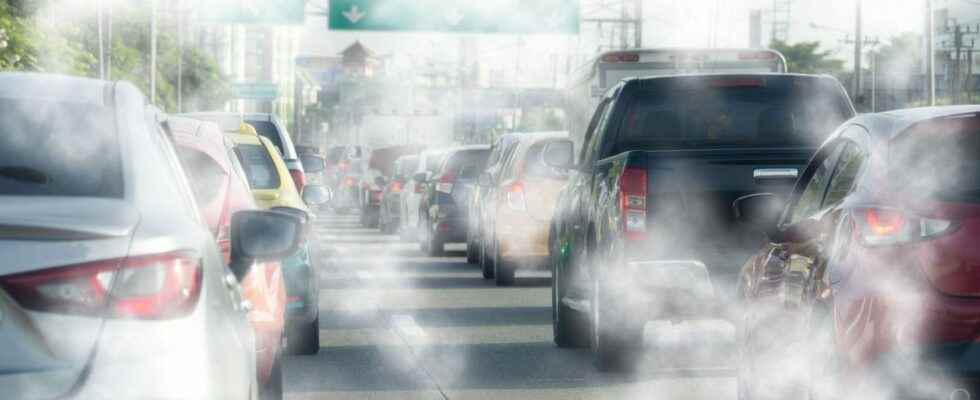Published on
Updated
Reading 2 mins.
in collaboration with
Dr Gérald Kierzek (Medical Director of Doctissimo)
Medical validation:
September 14, 2022
Against all expectations, fine particles are not the only cause of lung cancer, according to a study unveiled last Saturday at the congress of the European Society of Medical Oncology. A major advance that opens interesting perspectives in terms of treatment and prevention.
Air pollution is responsible for around 2% of cancer deaths in Europe and 9% of lung cancer deaths. A real public health problem, which scientists from the Francis-Crick Institute and University College London have looked into.
250 human lung tissue samples were analyzed
Concretely, the research team tried to understand how fine particles – rejected by large industries, intensive agriculture, means of transport – affected the cells of the respiratory tract.
“Fine particles are a hidden killer”recalls Charles Swanton of the Francis-Crick Institute, responsible for presenting this study at the annual congress of the European Society of Medical Oncology, Saturday, September 10.
To do this, British scientists explored data from 460,000 English, Korean and Taiwanese people and confirmed that exposure to increasing concentrations of fine particles was linked to a risk of lung cancer.
In mice, they observed that these fine particles of less than 2.5 microns induced changes in two genes (EGFR and Kras) linked to lung cancer.
They then analyzed in the laboratory nearly 250 samples of healthy human lung tissue, never exposed to cigarette smoke or heavy pollution. Among these samples, 18% of them showed mutations in the EGFR gene, normally associated with rapid and abnormal growth of a cancerous tumor. KRAS alterations also appeared in 33% of the samples.
Conclusion: the researchers thus discovered that the gene mutation was not solely responsible for cancerous development.
“Alone, these mutations are probably not enough to lead to cancer. But when you expose a cell to pollution, it probably stimulates some kind of reaction inflammatory“, and if “the cell harbors a mutation, it will form a cancer“, specifies Professor Swanton.
It’s a “decryption of the biological mechanism which was until then an enigma“but this is”quite confusing“, admits the chief medical officer of Cancer Research UK, the main funder of the study.
New approaches to prevention and treatment
Conversely, individuals who do not present a gene mutation and who are exposed to fine particles during their lifetime do not eventually develop pollution-related lung cancer.
This study demonstrates that in the event of an EGFR mutation, the fine particles will create a micro-environment which, through inflammatory phenomena, will induce cancerous development. This discovery offers real prospects in terms of knowledge about cancer, treatments and also prevention.
In the past, a study had thus shown by chance that anti-inflammatory compounds acting on interleukin-1-beta (normally used for cardiovascular pathologies) reduced the risk of lung cancer.
Tomorrow, prescribing a preventive molecule to certain patients who live in a polluted area could be possible if these results are confirmed.
